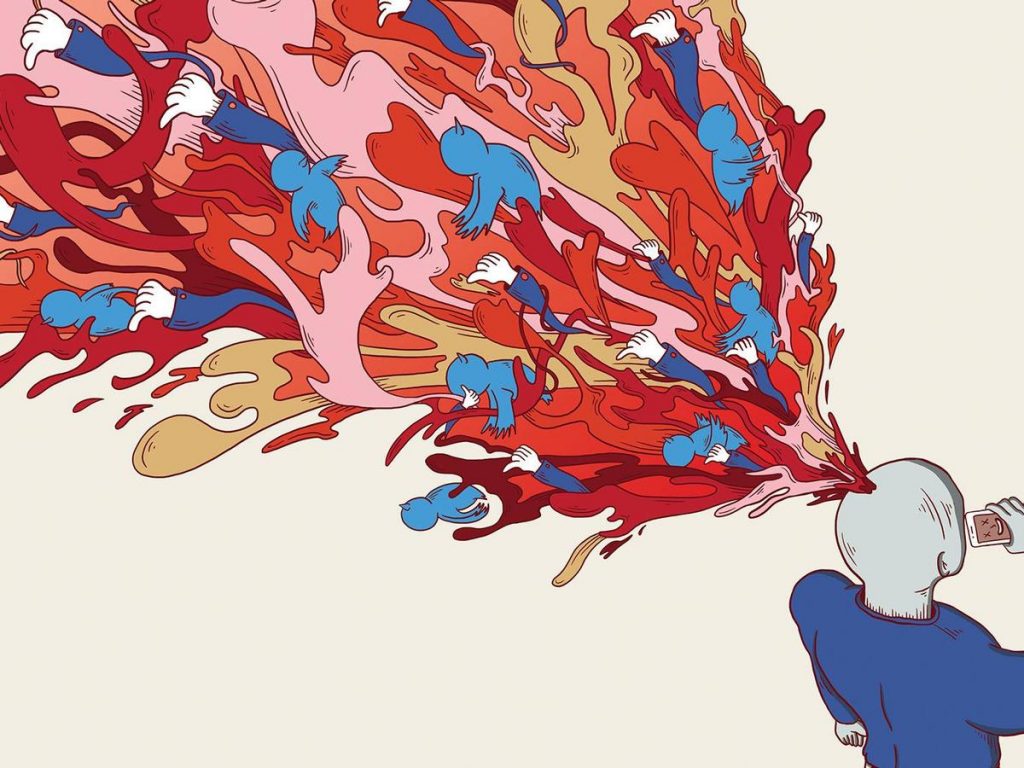Editor’s Note: This month, that is September 2020, FII’s #MoodOfTheMonth is Boys, Men and Masculinities, where we invite various articles to highlight the different experiences of masculinity that manifest themselves in our everyday lives and have either challenged, subverted or even perpetuated traditional forms of ‘manliness’. If you’d like to share your article, email us at pragya@feminisminindia.com.
“The fact that men experience significant mental health problems should not be surprising; men are human beings, and human beings often experience problems in living,” read a statement in a research paper on feminist therapy for men. When presented with this statement, the idea that men need mental health support is easy enough to understand. Unfortunately, global discrepancies in outcomes such as death by suicide, indicate that the statement does not translate into utilisation and practice of mental health services.
Getting to the Therapist’s Office

When identifying gaps in professional mental health support, factors rightly highlighted include accessibility (availability of qualified professionals, affordability of services, etc.) and cultural acceptance or stigmatisation of mental health. Gender is an additional factor which affects whether a person may end up reaching out to a mental health professional or even their social support networks. Prevailing gender norms and “scripts” of masculinity may play a significant role in not just creating and maintaining a presenting problem (i.e., the issue that brings someone to therapy), but also in avoidance of seeking help needed to cope with it. Men have been found to seek less help for mental health concerns, because the compulsion felt to adhere to norms and scripts may end up imposing limits on their choice and ability to express themselves.
Men have been found to seek less help for mental health concerns, because the compulsion felt to adhere to norms and scripts may end up imposing limits on their choice and ability to express themselves.
Why is Feminist Therapy Suitable for Men?
A look back at the early decades of psychology would suggest that some theories and models of counselling and psychotherapy may have been androcentric in their origins. Many prominent therapists themselves and the people they studied through clinical practice or research were men. This led to development of approaches which, in the process of addressing the needs identified by research and practice, became androcentric themselves. However, their application in therapy with men is also starting to be questioned now because their narrow definitions of “normal masculinity” do not capture all individuals identifying as men.
Because of its origins in women’s rights movements, feminist therapy has been associated with women clients and therapists. But its focus on intersecting identities, relational factors, ecological systems, and social constructionism, enables work with and by individuals with different gender identities. Feminist therapy allows for psychoeducation and reflection on gender and concepts associated with it, to better understand a presenting problem as well as deeper beliefs.

Gender aware therapy is an example of a feminist therapy approach that centralises the role of gender in mental health. Its sessions may highlight concepts such as “gender socialisation” (the process of learning gender norms and scripts, and their internalisation as “schemas”), and “gender role conflict” (psychological distress experienced due to compliance with restrictive gender norms). While uncovering internalised scripts and schemas may initially heighten some cognitive and emotional conflicts, therapists help create a safe space for processing and reframing them. As feminist therapy has evolved, it has argued for a similar analysis of role-based expectations/conflicts that come with other parts of identity.
Because of its origins in women’s rights movements, feminist therapy has been associated with women clients and therapists. But its focus on intersecting identities, relational factors, ecological systems, and social constructionism, enables work with and by individuals with different gender identities.
Feminist therapy provides space to hold seemingly paradoxical, non-dichotomous, and unorthodox views, to support a more nuanced therapeutic process. An example is the concept of “positive masculinity”, which tries to delineate adaptive traits associated with masculinity (usually, only celebrated when exhibited by men), and reframes them as positive “human traits” that may be beneficial for all people. Another example is the concept of “gender role strain paradigm”, which states that gender norms are inherently problematic, because compliance with them imposes restrictions on how people can live their lives, but their rejection results in backlash from the society (including facing prejudice and discrimination), which too can be detrimental to mental health.
A third example is its recognition that the same person may have aspects of their identity which carry privilege and some which lead to marginalisation. Research in the field has found that men as a group have more privilege, but some men may not experience a subjective sense of power. Partially, that emanates from the inability of dominant groups to see their privilege. But that subjective sense may also be dependent upon various social, cultural, economic, and political factors that affect a person’s position in the social hierarchy.
Instead of blaming clients, feminist therapy acknowledges that clients identifying as men, too, have to face negative consequences of being socialised in a patriarchal society. But it simultaneously encourages questioning patriarchy, identifying clients’ role in maintaining it, and advocating against it. Feminist therapy’s focus on systemic factors, allows for similar discussions on other parts of identity and how their significance may vary contextually. One of the aims of feminist therapy is to formulate interventions that address needs of clients and relevant ecological systems, to create an impact that moves beyond individual healing.
Eclectic Use of Feminist Therapy with Men
While specific techniques have emerged as feminist therapy has progressed (e.g.: gender aware therapy), it was conceived as a philosophical approach to counselling, not a form of psychotherapy in itself. As a result, other approaches have been able to incorporate a feminist lens into their framework.

Feminist family therapy is one such combination. It emphasises reflection on how gender may determine roles and expectations within family dynamics. Previously, feminist-cognitive-behavioral approach was another combination that was developed. Therapy with men who perpetuate domestic violence was one application of it, involving skills-training (e.g.: communication, expression, relaxation, identifying cognitive distortions, etc.) and resocialisation of gender roles. More recently, feminist therapy has been integrated with expressive arts. Even though this combination has been tested with adolescents, many outcomes related to that age group might be relevant in other stages of life, including recognition of intersecting identities (and their systemic or ideological roots), expanding worldview, and increasing creative self-efficacy.
Also read: Saviour Syndrome Of Masculinity: Can Our ‘Heroes’ Never Break Down?
Another format of therapy that can be beneficial for men is group therapy. The idea of receiving support from peers is inherent in group therapy. This focus on growth through relationships is also a fundamental idea in feminist therapy. Research on stress and coping has shown gender-related differences in methods adopted. Women, for example, are more likely than men, to adopt the “tend-and-befriend” approach which involves relying on social support networks.
Group therapy’s relational focus encourages utilisation of such an approach by men too, leading to a wider range of coping skills. With power dynamics being an important concern in feminist therapy, some group interventions may specifically discuss themes such as leadership and men’s socialisation towards power. Further, seeing other men in the group model different roles might allow group members to move beyond traditional ideas of gender roles.
Instead of blaming clients, feminist therapy acknowledges that clients identifying as men, too, have to face negative consequences of being socialised in a patriarchal society. But it simultaneously encourages questioning patriarchy, identifying clients’ role in maintaining it, and advocating against it.
Current Limitations, and Expectations for Future Research and Practice
No therapeutic approach can be holistically understood without acknowledging its shortcomings. Naming them allows practitioners and clients to seek other approaches to improve the therapeutic process. Feminist therapy for men presents with three key limitations, all partly highlighting the need to expand topics and demographics that are given attention in future discourse and research.
- The current evidence base for facilitating feminist therapy with men is limited. Many of the approaches have been theoretically derived based on feminist therapy for women.
- Research studies on feminist therapy have rarely taken into consideration how gender role expectations and standards of masculinity may be perceived by transgender men, and affect their self-concept, identity, and gender expression. Distress experienced due to assigned gender not matching gender identity, the decision to transition, and life after transition may not be understood in their entirety without uncovering to what extent prevailing notions surrounding masculinity and gender-related norms/scripts are deemed important and internalised.
- There is a need to understand how therapists who identify as men practice feminist therapy. With the therapeutic process often being referred to as the “microcosm” of the psychosocial processes that play out in the world, expecting only women mental health professionals to practice feminist therapy parallels the burden typically placed on them to provide emotional labour to alleviate men’s mental health.
Summary and Conclusion
Scholarly work in the field of feminist therapy has led to better-informed approaches to counselling and psychotherapy. It has found that men underutilise mental health services as there is a stigma associated with being a man in a help-seeking position and with being overtly expressive. That understanding should be used to make mental health services more accessible to men.
Therapy sessions can be informed by feminist therapy – by it either serving as the main framework or through its integration with other approaches. Centring gender identity and other identities intersecting with it can allow for more authentic self-reflection, and help create interventions that better meet the needs of clients. Discussing the evolution of gender and masculinity as social constructs helps client not feel individually attacked, while simultaneously identifying power and privilege bestowed upon them based on their gender (even when other parts of their identity may be marginalising).
Also read: The Problematic Representation Of Queer Masculinity In Disney Films
Feminist therapy encourages therapists and clients to challenge the larger culture in which constructs emerge and are sustained, and to get involved in actions/movements that contribute to systemic changes. This can help address some issues at their root, before they result in psychological distress for many people. As feminist therapy for men continues to grow, future research must address needs of transgender men and study how therapists who identify as men integrate feminist therapy into their work.
Aditi Trivedi (she/her/hers) is a dance/movement therapist and a mental health counsellor, who strongly believes in the role that arts can play in alleviating all facets of well-being. She approaches therapeutic work and her life with frameworks rooted in creative arts therapy and mental health counselling (Chacian/emergent, social constructionism, ecological systems-informed, strengths-based). You can find her on Instagram and LinkedIn.
Featured Image Source: Feminism In India




